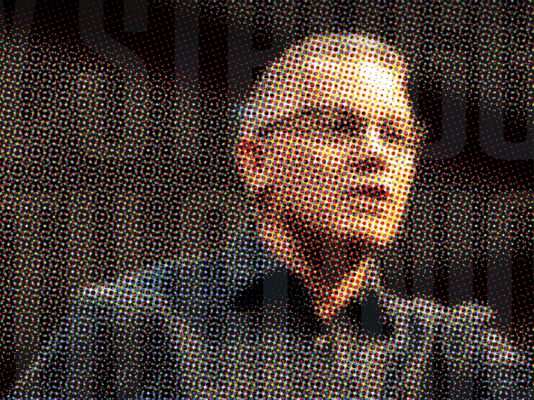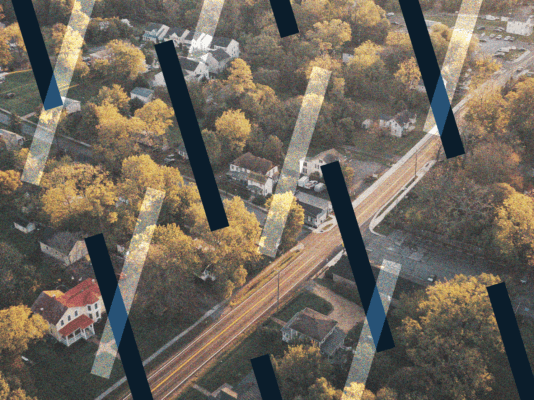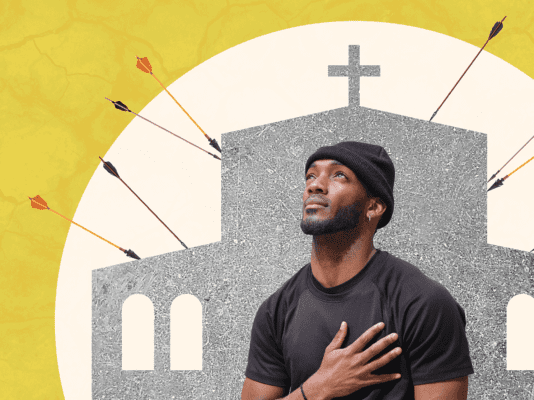As I type this, my teenage sons are in the next room, and I can hear them laughing and talking. They are on Zoom calls with their youth group from our church. In the midst of the coronavirus pandemic, they are finding a way to connect, to hear the Word of God, and to be discipled together. I am wiping away tears from my eyes, but I don’t quite know why. Partly it’s because this reality is unbelievably sad. And partly it’s because the despite-of-it-all nature of the church is unbelievably beautiful.
Children need to know that worship on the Lord’s Day is no less sacred in their living room than it is in a church building. Corporate worship is so vital to the life of a Christian that we should utilize whatever technology is available to stay connected to the body of Christ, to be encouraged by our faith family, and to be taught by the Word of God.
Watching thousands die every week, and thousands more lose their jobs, was a horrifying reality in this time of plague. All around the world, the necessity of social distancing brought about disconnection, separating us from friends, family, and our normal rhythms of life. For those of us who follow Jesus, the worst of these necessities has been the loss of the ability to gather together for worship. Many are thus asking, “How long will this go on? How long until we get back to normal?”
The truth is that we don’t know, nobody knows. But we do know one thing. Even if your church has resumed gathering for worship, there will not be a Sunday when, suddenly, everything is “back to normal,” at least not in the way that we think of it.
As we gather together again, we will not be back to normal. And, amid all the sadness around us, that may be Good News.
In a sense, all of us will be “back to normal” soon if, by that, one means the ability to gather once again. Yes, some are already doing that, and others will be soon. We will sing together again. We will hug each other again. We will take communion together again. But this will not happen in one Sunday, for which we can mark our calendars and count down toward, as though it were Advent moving toward Christmas.
By now most places have seen the requisite flattening of curves of infection and have the needed testing and tracing capabilities in place to loosen up on the restrictions we have faced. But, as we have seen, simply declaring businesses “reopened” does not mean an immediate return to the status quo. And the same is true of the church.
Getting creative
Despite the caricatures, the vast majority of American Christians complied with health and civic recommendations and mandates. In fact, most churches I know of were out in front of those recommendations. Did some Christians interviewed on television suggest that the blood of Christ would keep them from being infected? Yes. Did some televangelist declare he could blow the virus away? Yes. Did some share bizarre conspiracy theories on Facebook? Of course. But that’s a tiny sliver of American Christian life. The real story was how churches and Christians not only served their neighbors by ceasing to gather for a time, but the remarkable creativity they showed after doing so.
Some churches that never even recorded their sermons were able, in no time, to livestream their services, to provide ways to do youth group Bible studies via Zoom, and maintain prayer chains through texting and social media. Churches without even a website address found ways to enable their people to give their offerings online. Some churches had to find a way to vote on calling a new pastor with online voting or drive-through affirmations.
This sort of creativity will not end. The fact is that though most churches have started the process of “reopening,” in almost every case, this will not mean dropping livestreaming and other forms of connection but adding in-person gatherings to the options created during social distancing.
Embracing the new normal
Lots of people have long been eager and ready to get back. But, even so, until there is a vaccine for this virus, churches will be spacing congregants out in their sanctuaries. Some churches that have traditionally had only one service may now opt to have multiple services. And out of necessity, some churches have opted for persons or families to “sign up” for what service they will attend (the way some churches have previously done on especially crowded days such as Easter).
And as we’ve already seen, there will still be lots of people who, even after churches are back to gathering, will be unable to attend. Those who are elderly or who have complicating conditions will be unable to resume attendance for some time. For them, there will still need to be ways of maintaining connectedness. The livestreaming may well continue for a long time, even if it is streamed from a building with people in it. Online giving will continue to be a necessity for most churches, along with perhaps a centralized slot for people to drop their tithes or offerings, instead of the passing of the plate.
Additionally, for a long time to come there will be aspects of church life that will be different. Churches that never thought about a category of “ushers” will now have people assigned to make sure that doors do not have to be touched as people enter and exit. Bathroom facilities will need to be restricted to very small groups to keep distancing requirements. The spacing of seating in auditoriums will require much more planning than just who normally sits where. And I can’t imagine anytime soon that the practice of “turn around and greet your neighbor” times in churches will resume, if it ever does (some of you will miss it; some of us won’t).
Maintaining peace and unity
Some people will think their churches are “giving in to fear” if they take longer to reopen than the businesses around them. Some will think that the church is insane for reopening whenever it does and will be tempted to say that their leaders don’t care about public health. In almost every case I have seen, though, pastors and leaders in this emergency are exercising wisdom and prudence. They are seeking to do the best they can, to make the best decisions they can. Let’s pray for one another, and impute the best of motives to one another.
Maybe we will hear the Word of God, in person and with our own ears, with a special realization that we need the Bread of Life, and that apart from it we perish.
If your pastors or leaders make a decision you think is overly naïve or overly cautious, in almost every case, what they need from you is an “I love you, and I’m praying for you, and I know you are having to make really tough decisions.” Make the best decisions you can in terms of your health and that of your family, but let’s all recognize that we will, all of us, make some mistakes in this process. We will find things we missed the first time. We will reconsider decisions we made. We have never been here before, and we should pray our children or grandchildren in the church never are again. So let’s, as much as possible, maintain peace and unity along with safety.
Gaining in the loss
Some of us need to be reminded that prudence and love of neighbor is not cowardice. In some sense, we are in the place that C.S. Lewis referenced in his famous “Learning in Wartime” lecture during the height of World War II. Lewis noted how fearful the time was, and how frustrating. And yet, he said, there was something to be gained in all the loss.
“All the animal life in us, all schemes of happiness that centered in this world, were always doomed to a final frustration,” he said. “In ordinary times only a wise man can realize it. Now the stupidest of us knows. We see unmistakably the sort of universe in which we have all along been living, and we must come to terms with it.”
If we give in to the frustration, Lewis said, we will surrender to despair and be unfaithful. But a certain degree of disillusionment, he argued, is in order. He said: “If we had foolish un-Christian hopes about human culture, they are now shattered. If we thought we were building up a heaven on earth, if we looked for something that would turn the present world from a place of pilgrimage into a permanent city satisfying the soul of man, we are disillusioned, and not a moment too soon.”
This experience has changed us all. We know what it is to be kept apart. We know that we are children of dust, and feeble as well as frail. We know that we are so feeble and frail, in fact, that something microscopic could, in an instant, take away from us our life, our livelihoods, our loved ones, even our church services. But maybe that means that we will hug each other longer, knowing how fragile all this is. Maybe we will hear the Word of God, in person and with our own ears, with a special realization that we need the Bread of Life, and that apart from it we perish.
As we gather together again, we will not be back to normal. And, amid all the sadness around us, that may be Good News.










